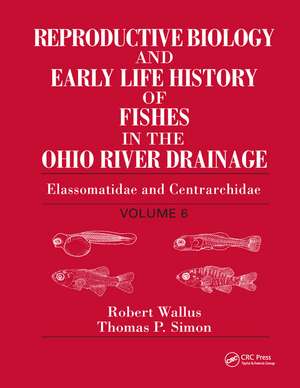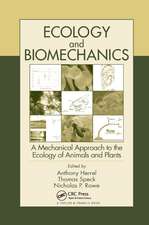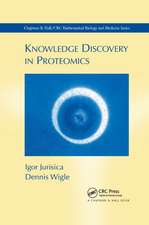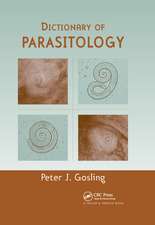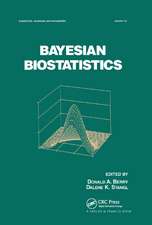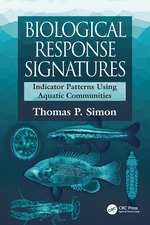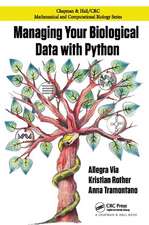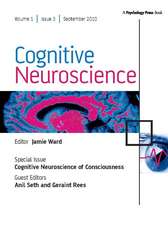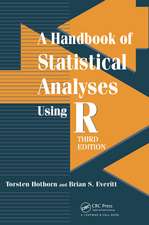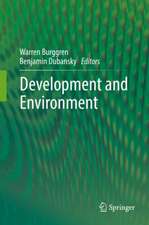Reproductive Biology and Early Life History of Fishes in the Ohio River Drainage: Elassomatidae and Centrarchidae, Volume 6
Autor Robert Wallus, Thomas P. Simonen Limba Engleză Paperback – noi 2019
| Toate formatele și edițiile | Preț | Express |
|---|---|---|
| Paperback (2) | 352.95 lei 6-8 săpt. | |
| CRC Press – 2 dec 2019 | 352.95 lei 6-8 săpt. | |
| CRC Press – noi 2019 | 387.57 lei 6-8 săpt. | |
| Hardback (1) | 1187.13 lei 6-8 săpt. | |
| CRC Press – 29 dec 2003 | 1187.13 lei 6-8 săpt. |
Preț: 387.57 lei
Preț vechi: 494.57 lei
-22% Nou
Puncte Express: 581
Preț estimativ în valută:
74.18€ • 80.61$ • 62.36£
74.18€ • 80.61$ • 62.36£
Carte tipărită la comandă
Livrare economică 21 aprilie-05 mai
Preluare comenzi: 021 569.72.76
Specificații
ISBN-13: 9780367387167
ISBN-10: 0367387166
Pagini: 472
Dimensiuni: 210 x 280 mm
Greutate: 1.38 kg
Ediția:1
Editura: CRC Press
Colecția CRC Press
ISBN-10: 0367387166
Pagini: 472
Dimensiuni: 210 x 280 mm
Greutate: 1.38 kg
Ediția:1
Editura: CRC Press
Colecția CRC Press
Public țintă
Academic and Professional ReferenceCuprins
Table of contents not yet available.
Notă biografică
Wallus, Robert; Simon, Thomas P.
Descriere
This seven-volume series is the most extensive treatise on early life histories of the freshwater fishes of North America. It represents the state-of-the-art in fishery biology and provides a systematic approach to the study of early life histories of all the fishes in this region. Each volume contains distinguishing characteristics and a pictorial guide to the families of fishes in the OR Drainage, followed by chapters on the families. This series fills a gap in the literature, providing information on the spawning habitat requirements, reproductive behavior, and ecological relationships during the first few months of life for most species. This fifth volume examines the family Centrarchidae.
Recenzii
About the Series: - A much-needed taxonomic aid, complete with keys, diagnostic criteria, and illustrated descriptions for identification of the eggs, larvae, and early juveniles of most of about 285 fishes in the Ohio River Basin. It is also an equally needed compendium of information on the ecology of those early life stages, as well as a summary of the distribution, habitat, and reproductive biology of their parents--the original, report-imbedded, and previously published information compiled in each volume of this guide goes a long way towards filling immense gaps in our knowledge for future research and management.
Darrel E. Snyder, Colorado State University, from the Foreword - Each species account provides an excellent mix of coherent text, selected quantitative information, and line drawings illustrating the early life stagesÖQuantitative information is useful without being overwhelming. Maps are included when relevant and background material provides key entries to the published literature for each speciesÖThe fish fauna of the Ohio River Drainage includes a large proportion of the fishes of eastern North America, including many species whose ranges extend well beyond the Ohio River. For that reason these volumes are valuable beyond the Ohio River drainage. They provide a systematic approach to the study of early life histories of fishes and are useful as a guide to scientists and managers beyond the region, even in areas such as western North America. This series will prove useful to scientists and managers from state and federal agencies, to industry and consulting firm staff dealing with river fis
James R. Karr, University of Washington
Darrel E. Snyder, Colorado State University, from the Foreword - Each species account provides an excellent mix of coherent text, selected quantitative information, and line drawings illustrating the early life stagesÖQuantitative information is useful without being overwhelming. Maps are included when relevant and background material provides key entries to the published literature for each speciesÖThe fish fauna of the Ohio River Drainage includes a large proportion of the fishes of eastern North America, including many species whose ranges extend well beyond the Ohio River. For that reason these volumes are valuable beyond the Ohio River drainage. They provide a systematic approach to the study of early life histories of fishes and are useful as a guide to scientists and managers beyond the region, even in areas such as western North America. This series will prove useful to scientists and managers from state and federal agencies, to industry and consulting firm staff dealing with river fis
James R. Karr, University of Washington
